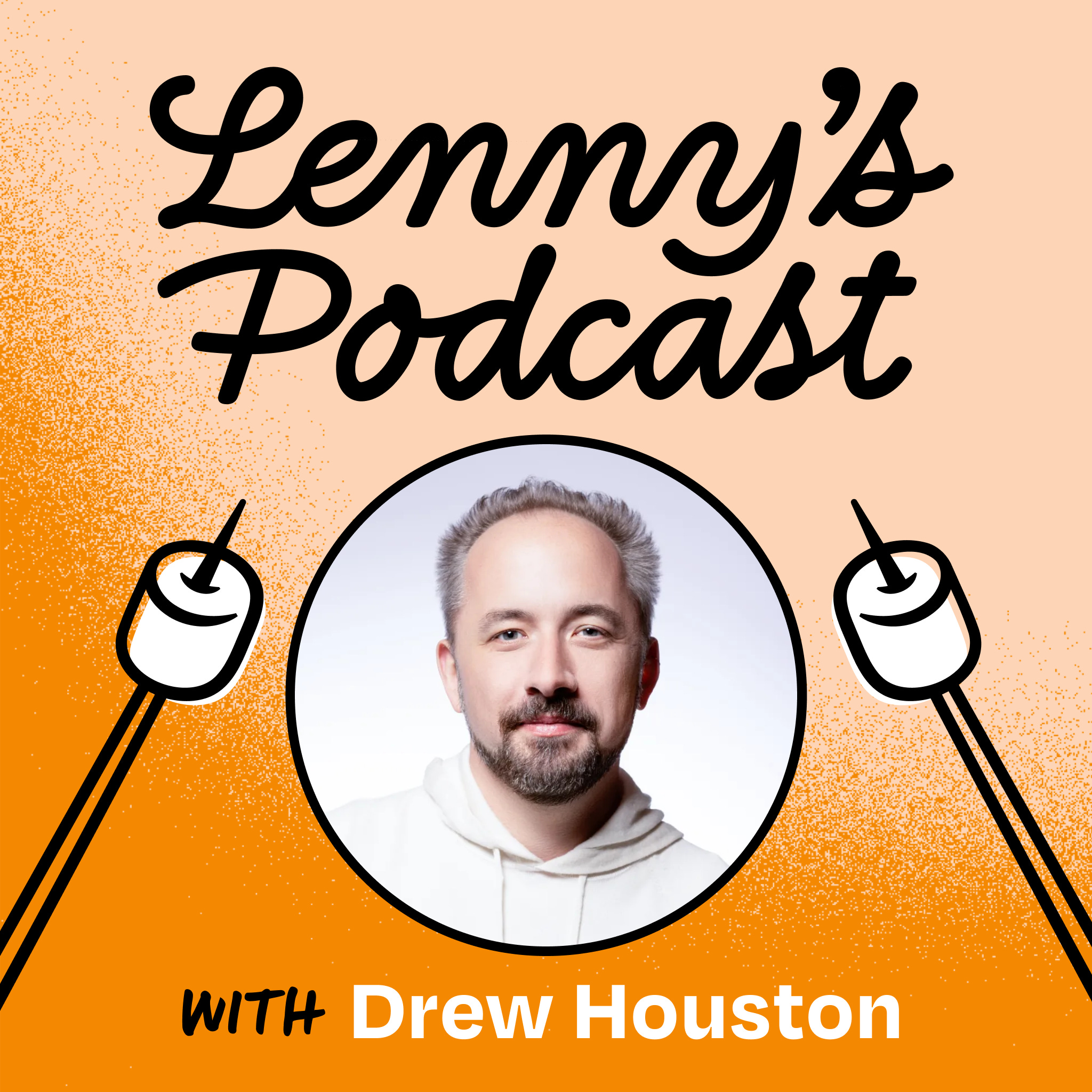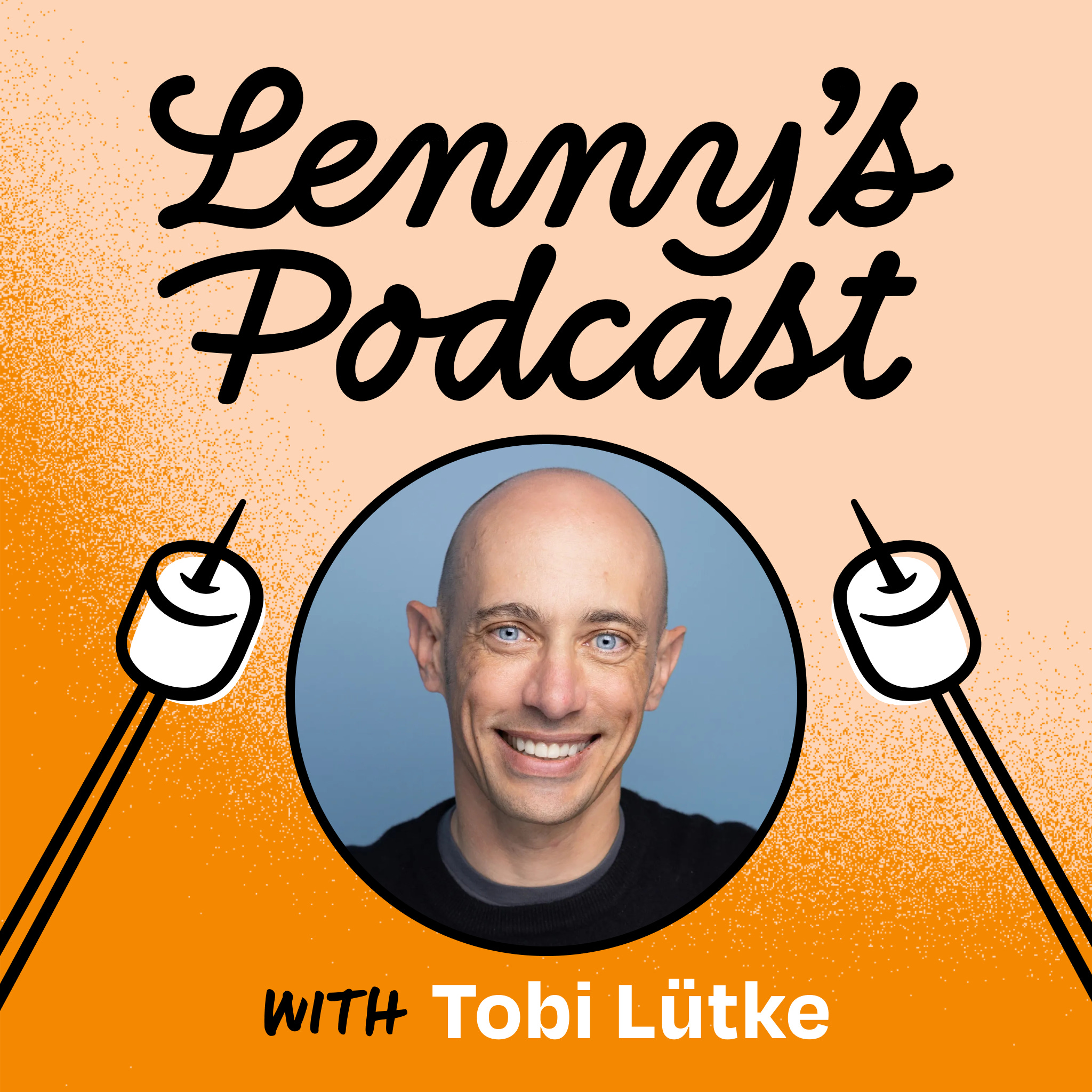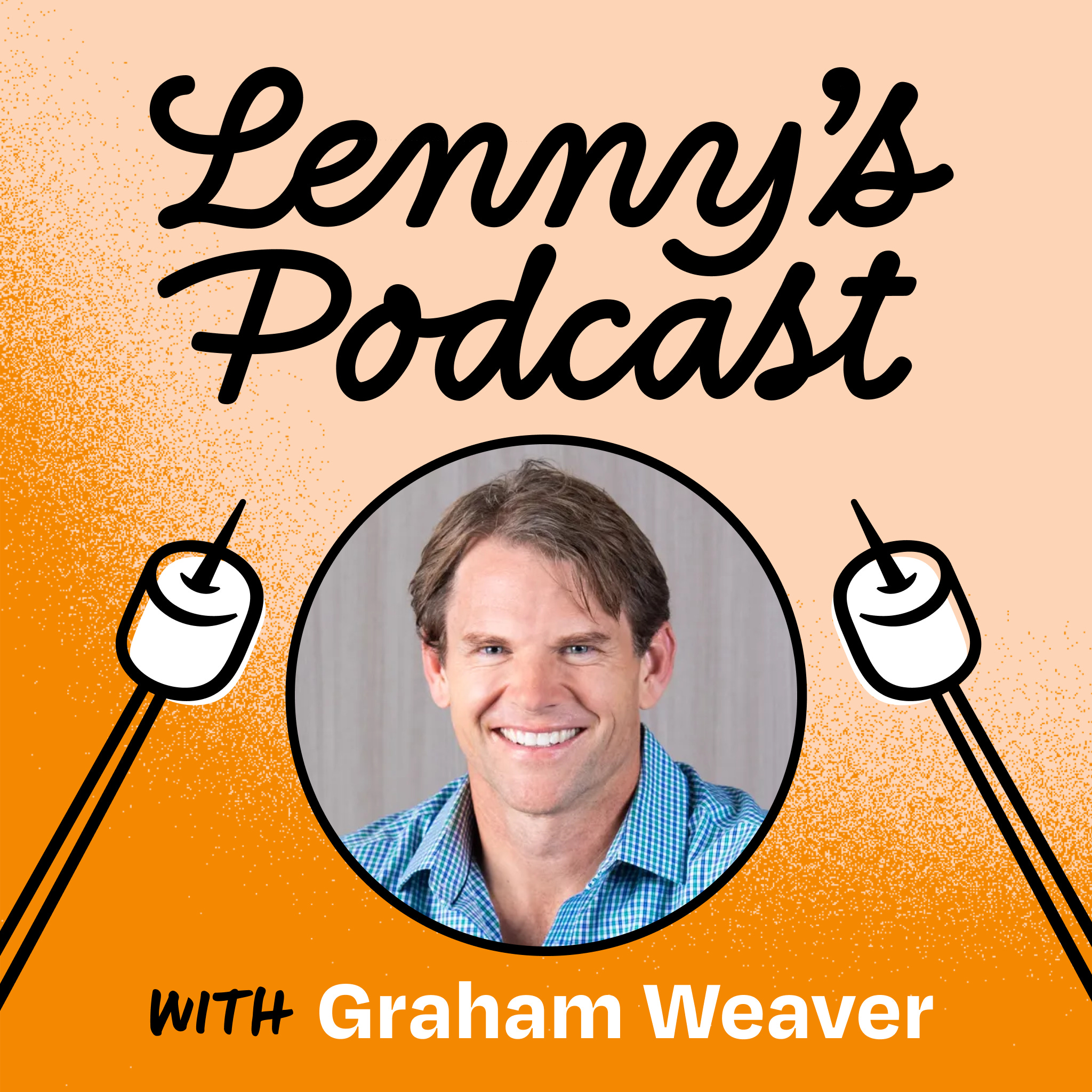
January 9, 2025 • 1hr 37min
Behind the founder: Drew Houston (Dropbox)
Lenny's Podcast: Product | Growth | Career

Key Takeaways
- Three distinct eras of Dropbox: Early viral growth and success (2007-2014), battling big tech incumbents (2014-2019), and reinventing for the future of work (2019-present)
- The challenges of competition from big tech are often not immediately visible - like "seeing a mushroom cloud in the distance" before feeling the impact
- Founder psychology is critical - learning to separate your identity from the company's performance and building support systems is essential for sustainability
- Leadership evolution requires constantly staying ahead of the company's growth curve through reading, mentorship, and systematic learning
- The importance of balancing experienced and high-potential talent to maintain organizational learning and execution capabilities
Introduction
Drew Houston is the co-founder and CEO of Dropbox, which he started in 2007 at age 24. The company has grown from a simple file-syncing tool to a service used by over 700 million registered users. In this conversation, Drew provides an unprecedented look at the challenges and lessons learned from building and scaling Dropbox over 18 years, including candid discussions about competing with tech giants, managing founder psychology, and reinventing the company multiple times.
Topics Discussed
The Early Days and Viral Growth (6:41)
Drew started Dropbox out of personal frustration with file syncing and sharing. The initial growth came through clever marketing and viral mechanics:
- Y Combinator launch - Created viral demo video targeting Hacker News to get Paul Graham's attention
- Viral waiting list - Beta list grew from 5,000 to 85,000 overnight after posting demo video on Digg and Reddit
- Rapid scaling - Company went from $7.6M valuation in 2007 to $4B in 2011
The Rise of Platform Competition (14:19)
Around 2013-2014, major tech platforms began launching competing products:
- Apple launched iCloud in 2011, with Steve Jobs calling Dropbox "archaic"
- Google Drive launch had been long anticipated as a major threat
- "Competition is not a shotgun blast - it's more like a boa constrictor" - Drew Houston on the gradual impact of competition
- Initial platform launches didn't immediately impact metrics, creating false sense of security
Strategic Inflection Point (20:49)
By 2015, Dropbox faced major strategic challenges:
- Google Photos launch offered free unlimited storage, undermining Dropbox's business model
- Fighting on multiple fronts against platform companies in storage, photos, and productivity
- Made difficult decision to kill Carousel and Mailbox products to focus on core business
- "We went from the company that could do no wrong to the company that could do no right" - Drew Houston
Managing Founder Psychology (29:36)
Drew had to develop new psychological tools and support systems:
- Mindfulness and meditation to create distance between personal identity and company performance
- Mentorship from Bill Campbell and other experienced leaders
- Understanding personal patterns through tools like the Enneagram personality system
- "The hardest thing for a founder is managing your own psychology" - Drew Houston quoting Ben Horowitz
Building Support Systems (40:19)
Critical elements for sustainable leadership:
- Regular reflection time away from day-to-day operations
- Therapy and coaching for personal development
- Community of peer founders at different stages
- Reading and systematic learning to stay ahead of company needs
The Challenge of Scale (50:35)
Key organizational challenges that emerged:
- Seniority gap - Difficulty balancing experienced and high-potential talent
- Structural evolution - Moving from functional to product/business unit organization
- Cultural transformation - Maintaining startup mindset while professionalizing
- "Success plants the seeds of failure" through complacency and entitlement
Reinventing for the Future (58:11)
Current focus on reimagining Dropbox:
- Dropbox Dash - New universal search and organization tool
- AI integration - Adding natural language capabilities
- Back to roots - Solving fundamental information organization problems
- Maintaining innovation while strengthening core business
Lessons for Founders (1:22:41)
Key insights for entrepreneurial success:
- Understand the game levels: Micro (tactical), Macro (strategic), Meta (industry/cycle)
- Build learning systems - Reading, mentorship, peer networks
- Plan learning ahead - What will you need to know in 1, 2, and 5 years?
- Embrace discomfort - Run towards challenges rather than away
Personal Growth (1:27:46)
Reflections on the founder journey:
- Building character through challenges
- Transferable learning to other life domains
- Finding sustainable motivation beyond external metrics
- "The experience of starting a company can be a forge for better character" - Drew Houston
Conclusion
Drew Houston's journey with Dropbox illustrates the full spectrum of challenges in building and scaling a major technology company. His candid sharing of both external challenges (competition, market changes) and internal struggles (psychology, organizational scaling) provides invaluable insights for founders. The key lesson is that success requires constant evolution - of the company, the product, and most importantly, the founder themselves. Building sustainable systems for learning and personal growth while maintaining equanimity through challenges is essential for long-term success.









